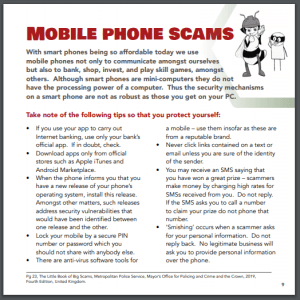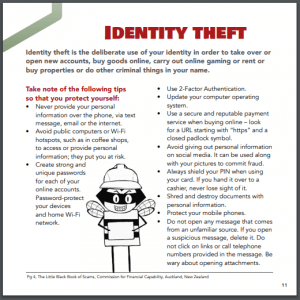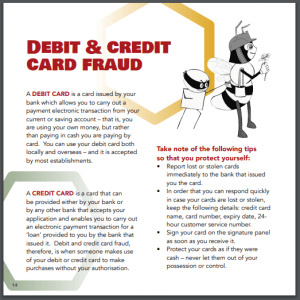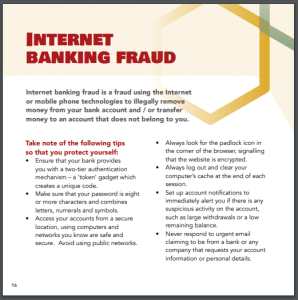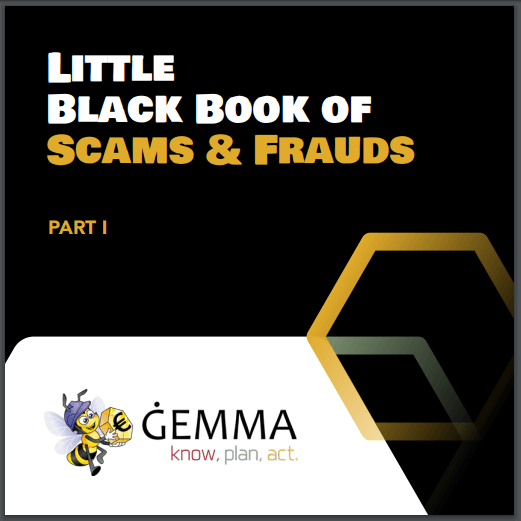This first e-book is Part I of a two part series on scams and fraud. This e-book stemmed from the realisation that knowledge and tips on how to protect yourself against scams and frauds is fragmented – and we realised that we too were creating content on scams and fraud in a non-structured manner. We also realised that if you are a victim of a scam or a fraud and you want to report it you are likely to feel lost. It took ĠEMMA time to source out to whom and where should you report a scam.
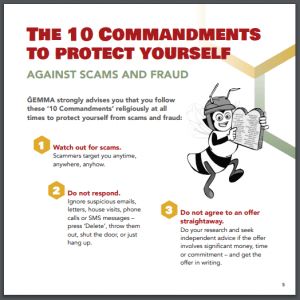
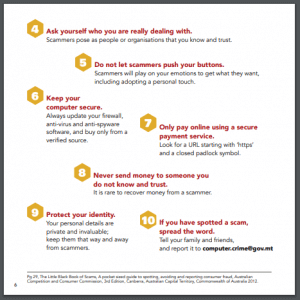
In preparing this e-book we replicated the Little Black Book of Scams first launched by the Australian Competition and Consumer Commission in 2012. This concept caught on. The Metropolitan Police Service in the UK and the Commission for Financial Capability in New Zealand have replicated the concept. Indeed, the Metropolitan Police Service in 2019 issued its 4th Edition – incorporated the latest scams and and frauds.
What is so special with the Little Black Book of Scams and Frauds? We liked the concept because:
- It presents scams and fraud in simple language and the minimum of jargon.
- It presents easy to understand tips on how to protect yourself against scams and fraud.
- It refers a person to resources setting out how you are to protect yourself.
- It provides you with guidance of what action to take and where to go in the event you get scammed.
In this first part we explore the following frauds and scams:
- WI-FI Hotspots
- Holiday Fraud
- Mobile Phone Scams
- Investment Scams
- Identity Theft
- Romance and Dating Fraud
- Debit and Credit Card Fraud
- Internet Banking Fraud
